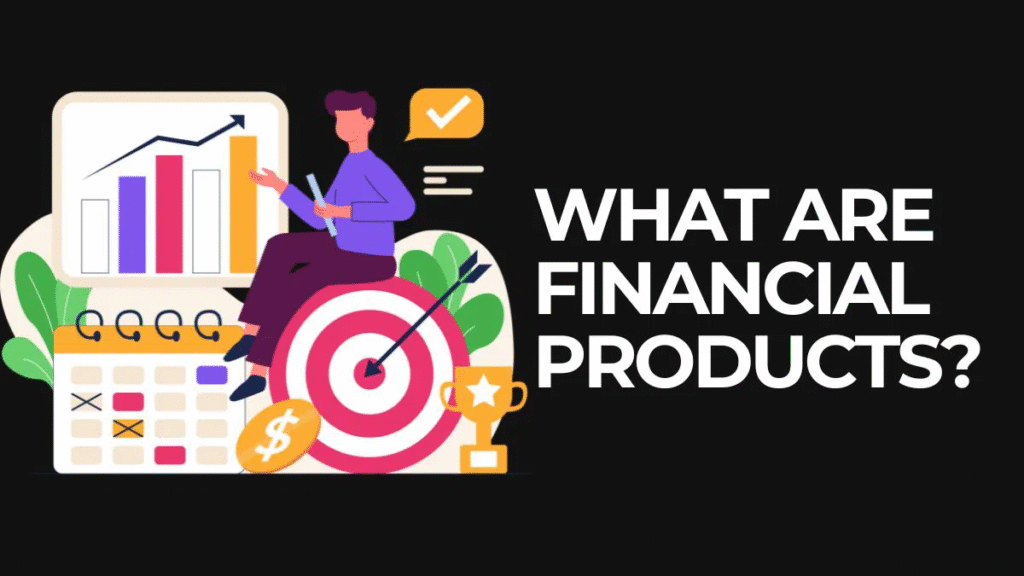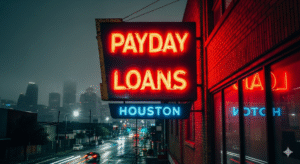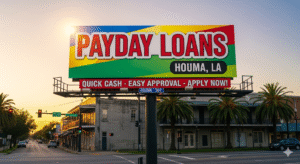
Good Sportsman Charge on Credit Card Explained:
A Good Sportsman charge on a credit card usually indicates a purchase related to sporting goods, either from a physical store, an online retailer, or a subscription service connected to sports gear or activities. Many people notice this charge without recalling the transaction, which raises concerns about its legitimacy.
This charge is typically legitimate but can sometimes be linked to a subscription or recurring service from Good Sportsman Marketing, LLC. It’s important to review recent purchases and subscriptions carefully to confirm the origin of these charges. If the charge is unexpected, investigating and contacting the merchant directly can clarify the situation.
Since Good Sportsman Marketing, LLC is not widely known and not accredited by the BBB, some users report difficulty canceling subscriptions connected to these charges. Understanding where the charge comes from helps prevent continued billing or potential confusion on credit card statements.
Understanding Good Sportsman Charges on Credit Cards
Good Sportsman charges typically appear as transactions linked to purchases involving outdoor and sporting goods products. These charges may seem unfamiliar at first, especially when the merchant name on the statement differs from the brand advertised during purchase. Identifying legitimate charges requires understanding the source and variations of merchant listings.
Definition and Common Scenarios
A Good Sportsman charge on a credit card usually corresponds to transactions made with Good Sportsman, a Texas-based company specializing in outdoor product brands like Stealth Cam and Walker’s. Customers often see this charge after purchasing hunting cameras, game calls, or other outdoor equipment either online or in physical stores.
Not all unfamiliar charges are fraudulent. Some come from authorized subscriptions or past orders delayed in payment processing. However, unexpected charges warrant prompt investigation, especially if the cardholder does not recognize any related purchase.
How to Identify a Legitimate Good Sportsman Charge
Consumers should start by reviewing recent purchases linked to outdoor or hunting gear. Legitimate charges will align with transactions at Good Sportsman or its sub-brands. Checking order confirmation emails or receipts helps confirm the charge’s validity.
If the charge is unfamiliar, contacting the card issuer is essential. Most credit cards provide zero-liability protection for unauthorized transactions. It’s also important to watch for merchants using third-party payment processors, which can obscure the recognizable company name.
Common Merchant Names and Variations
Charges related to Good Sportsman may appear under various names, including Good Sportsman Marketing LLC, Sportsman’s Internet Store, or other related aliases. Similar-sounding or unrelated names like Acqra, Blossom Up, or geographic-linked entries such as 100 Deerfield Lane may appear and cause confusion but are generally unrelated to the Good Sportsman brand.
Other unrelated charges often mistaken for Good Sportsman include Towson CMF, Modern Leasing MI, and Corporate Filings LLC. These are separate entities and represent different services or products. Verifying merchant details through the credit card provider’s app or website can clarify the source.
Why You Might See a Good Sportsman Charge
A Good Sportsman charge on a credit card usually reflects transactions related to outdoor goods or services. However, it can also be an indicator of unauthorized use or credit card abuse. Understanding these possibilities helps in identifying whether the charge is valid or suspicious.
Legitimate Purchases and Memberships
Good Sportsman is a company based in Texas that sells outdoor products, including brands like Stealth Cam and American Hunter. Charges may appear if someone buys sporting goods, camping equipment, or subscriptions to related services.
These transactions might come from online retailers, physical stores, or affiliated vendors. The merchant name on the statement might differ from the store’s brand, which can cause confusion.
If the cardholder recognizes related purchases or memberships, these charges are legitimate. Always keep receipts or order confirmations for verification.
Unauthorized Transactions and Fraudulent Charges
If the Good Sportsman charge is unfamiliar, it could be due to credit card theft or abuse. Credit card dump sites and first-time offenses of credit card theft often lead to fraudulent charges appearing on statements.
Felony-level credit card abuse involves unauthorized use resulting in significant loss or repeated offenses. Reporting suspicious charges promptly is essential to benefit from zero liability policies typical with major credit cards.
Disputing the charge quickly can prevent further financial damage and legal complications related to credit card fraud.
How to Respond to Unexpected Credit Card Charges
When an unfamiliar charge appears on a credit card statement, prompt action is crucial. Understanding how to dispute charges, recognize fraud, and keep track of future activity helps protect finances and maintain accurate account records.
Disputing a Charge with Your Card Issuer
If the “Good Sportsman” charge or any unexpected fee appears, the cardholder should contact their credit card issuer immediately. Most companies allow disputes within 60 days of the statement date containing the charge.
The cardholder must provide details such as the charge amount, date, and merchant name. Using credit card reconciliation software can help track and compare transactions for accuracy before disputing.
Issuers will investigate the claim and may temporarily remove the charge during this period. The cardholder should avoid paying disputed amounts until the resolution. It is important to keep records of all communications with the issuer.
Reporting Credit Card Fraud
When it’s clear the charge is unauthorized—such as a fraudulent “Good Sportsman” charge—victims should report the incident as fraud immediately. Credit card companies do not have the authority to place liens on a cardholder’s house, but unauthorized charges can lead to severe credit issues if not addressed.
Cardholders should monitor their statements for other suspicious activity and ask the issuer to issue a new card number. Reporting swiftly limits losses and protects credit scores. Filing a police report may also be required by some issuers.
Monitoring Future Account Activity
After resolving any unexpected charges, ongoing vigilance is necessary. Cardholders should regularly check statements and set up alerts for new purchases. Many banks offer real-time transaction notifications via apps or email.
This prevents unnoticed credit card abuse charges from accumulating. If the cardholder uses a credit card for planned significant expenses like LASIK surgery, they should verify transactions promptly to avoid surprises.
Maintaining careful records and timely review reduces the chance of future unauthorized charges going undetected.
Prevention and Security Measures for Credit Card Accounts

Protecting credit card accounts requires specific actions like monitoring charges carefully and understanding potential risks tied to merchant names. Proper security steps help reduce unauthorized use and quickly identify any suspicious activity.
Best Practices for Preventing Credit Card Fraud
Users should regularly review their credit and debit card statements to spot unfamiliar transactions early. Enabling alerts for purchases or unusual activity provides immediate notification of potential fraud.
Updating passwords on accounts linked to credit or debit cards is essential, especially after receiving a new card. Multi-factor authentication adds an extra security layer to prevent unauthorized access.
Physical card security matters. People should never share card details or PINs and be cautious when using cards in unfamiliar or unsecured locations. Chip malfunction, while rare, can sometimes lead to declined transactions or require contactless payment alternatives to avoid exposing data.
Banks typically have fraud detection systems and will often block suspicious charges proactively. Customers should report any unauthorized use immediately to limit financial liability and initiate investigations.
Recognizing Suspicious Merchant Names
Charges showing unfamiliar or vague merchant names on statements may indicate suspicious activity. Merchants like Good Sportsman appear if the user purchased products from them or their sub-brands, but unfamiliar names warrant closer scrutiny.
Users should cross-check merchant names with recent purchases or subscriptions. If a merchant name is unclear—often due to billing from a parent company—it helps to Google the name or check with the card issuer’s customer service.
Unrecognized charges can sometimes result from legitimate businesses charging under different names. However, consistently unrecognized or small recurring charges should be reported to the card provider immediately to avoid ongoing losses.
Understanding the origin of merchant names and identifying suspicious ones can prevent or minimize the impact of unauthorized charges on both credit and debit card accounts.
Related Payment and Card Issues
Credit card transactions can be impacted by different types of declines and unexpected merchant charges. Understanding the distinction between soft and hard declines helps in navigating payment issues, while recognizing common legitimate charges can prevent confusion.
Soft Declined vs. Hard Declined Credit Card
A soft decline occurs when a credit card payment is temporarily rejected but can often be approved later. This may happen due to insufficient funds, bank fraud alerts, or technical errors. Customers may retry the transaction or contact their bank to resolve the issue.
In contrast, a hard decline is a permanent refusal of a card transaction. Reasons include expired cards, credit limits being exceeded, or blocked accounts. Hard declines require updating card information or addressing the underlying account problems before trying again.
Businesses need to recognize these differences, especially in sales environments like buying proxies or subscriptions. A soft decline allows time to correct issues, while a hard decline signals a more serious problem needing immediate attention.
Common Legitimate Credit Card Merchant Charges
Some merchant charges may appear unfamiliar but are legitimate. For example, charges labeled “Good Sportsman” often relate to purchases at sporting goods stores, online retailers, or sports-related subscriptions.
Other common legitimate charges include membership fees, digital subscriptions, or authorized recurring payments for services. Customers should keep records of these transactions and verify recent purchases before disputing charges.
If uncertain about a charge, contacting the merchant directly is the first step. Banks provide protections like dispute options, but proving the legitimacy of charges or cancellations is necessary to avoid unnecessary conflicts.
Comparing Credit Cards and Debit Cards
Credit and debit cards offer different transaction processes, security features, and user benefits. Understanding these distinctions helps determine which card suits certain financial situations and spending habits more effectively.
Credit Card vs. Debit Card Transactions
Credit card transactions use borrowed funds from a credit limit, allowing users to pay later. This can result in interest charges if the balance is not paid in full each month. Debit card transactions deduct money directly from the linked bank account.
Credit cards often provide rewards and purchase protections, while debit cards offer immediate payment without a credit impact. For example, a pinless debit card transaction may allow purchases without entering a PIN, but funds still withdraw instantly.
The difference between US debit and Visa debit lies in the network; Visa debit cards operate on the Visa network, enabling broader acceptance and often enhanced fraud protection compared to local debit cards.
Debit Card Security and Usage
Debit cards generally carry less fraud protection than credit cards, though protections vary by issuer and card type. For instance, electronic debit cards process transactions through electronic networks, allowing faster authorization but sometimes fewer safeguards.
Using a debit card linked to an HSA (Health Savings Account) allows cash withdrawal and purchases only for qualified medical expenses. Users should verify if cash withdrawals with an HSA debit card are permitted by their plan.
Shazam debit cards utilize a network that processes transactions in certain regions. This regional limitation may affect where the card is accepted internationally compared to global networks like Visa or Mastercard.
Features of Debit Cards for Different User Profiles
Debit cards can suit users with poor or no credit well, as many issuers do not require a credit check. For people searching for a debit card for bad credit crossword clue, these cards function without building credit but allow safe spending within available funds.
International debit cards, such as the Bank of Bhutan international debit card, offer multi-currency support and global access, tailored to frequent travelers or expatriates. Some cards might feature limited ATM fees, currency exchange benefits, or spending alerts.
Pros of debit cards include no interest charges, easy budgeting through direct account deductions, and wide acceptance for everyday purchases. However, they lack the credit-building capability and rewards programs typically associated with credit cards.
Line of Credit and Loan Payment Considerations

When managing payments tied to credit products, borrowers must evaluate different financing types and their terms. Interest rates, repayment structures, and borrowing limits vary widely. These factors influence the suitability of each option for personal, home, or business use.
Different Types of Lines of Credit
Lines of credit offer flexible borrowing up to a preset limit with interest charged only on the borrowed amount. They come in two main forms: secured and unsecured. Secured lines, such as guidance line of credit or a cash value line of credit, require collateral, often resulting in lower interest rates. Unsecured lines like unsecured business lines of credit from Coast Hill have no collateral but typically higher rates.
Borrowers using TN Bank business line of credit or similar products benefit from revolving credit access for expenses but must manage their draw and repayment periods carefully. Some lines close after a draw period, limiting further borrowing until the loan is repaid.
Home Equity Loans and HELOCs
Home equity loans and home equity lines of credit (HELOCs) convert home equity into usable funds. A home equity loan provides a lump sum at a fixed interest rate, often used for one-time expenses. A HELOC acts like a credit line with variable rates, allowing multiple draws over time.
For example, home equity loan 2nd position Daly City reflects loans subordinate to the primary mortgage, which might carry higher risk but often provide access to needed cash. HELOC rates vary widely; HELOC rates in Wichita, KS tend to be competitive, sometimes lower than credit card rates, but are subject to change.
Borrowers must consider loan term, interest rate stability, and repayment flexibility before choosing between these options.
Business Credit Card and Loan Options
Business credit cards, including credit union business credit cards or specialized cards like the AAMCO credit card, deliver convenience and reward features but often carry higher interest rates than loans. For larger expenses, lines of credit like construction line of credit provide targeted financing for project costs.
Small businesses should also evaluate unsecured business lines of credit, which avoid collateral requirements but come with stricter credit qualifications and higher rates. Combining credit cards with lines of credit or term loans allows for tailored cash flow management, balancing immediate expenses and long-term borrowing costs.
Handling Disputes and Legal Matters for Card Charges
Disputing unauthorized or incorrect charges requires attention to legal rights and timelines. Understanding contract disputes, credit card debt limits, and associated fees helps consumers protect themselves and handle conflicts effectively.
Legal Options for Unauthorized Credit Card Charges
When a cardholder notices an unauthorized charge, they should first contact the merchant to resolve the issue directly. If this fails, the cardholder can escalate by filing a dispute with their credit card issuer. The issuer often provides consumer protections, including possible chargebacks, which reverse the transaction.
If the charge relates to a contract dispute, such as a contractor suing for non-payment without a contract, the absence of a written agreement may complicate legal claims. Courts may still consider verbal agreements or other evidence, but proving the case can be difficult.
Consumers should be proactive, keeping records of communications and transactions. Knowing the rights granted under federal laws like the Fair Credit Billing Act supports stronger cases against fraud or billing errors.
Statutes and Limitations Related to Credit Card Debt
Each state sets its own statute of limitations for how long a creditor can legally pursue credit card debt collection. For example, in Georgia, this period is typically six years from the date of the last activity on the account.
Once the statute of limitations expires, creditors cannot sue to collect the debt, although the debt itself may still exist. Consumers must be careful, however, because making a payment or acknowledging the debt may reset the clock on this timeline.
Understanding these limitations helps consumers avoid unnecessary legal actions or payments on old debts that are no longer enforceable.
Credit Card Transaction Fees
Some attorneys or service providers may pass on credit card transaction fees to clients as part of their billing. Whether this is allowed depends on state law and the agreement between parties.
Fee policies should be disclosed upfront to avoid surprises. If a client disputes these charges, they can review the engagement contract and applicable fee regulations.
For disputes involving credit card transaction fees, it is essential to verify all charges against what was agreed upon initially and challenge unauthorized fees through the appropriate legal or card issuer channels.
Other Payment Situations and Financial Products

Various payment scenarios and financial products can affect credit card statements and budgeting. These include government-related payments, healthcare service arrangements, and assistance programs with specific certificates or incentives.
Government and Tax Payment Topics
Payments to government entities often appear in unique formats on statements. For example, the Oregon estimated tax payment is a common quarterly prepayment required by many taxpayers. It helps avoid penalties by covering expected tax liabilities ahead of filing.
Social Security benefits, such as the $1800 Social Security payment, may show as automatic deposits rather than charges. However, any related fees or service charges could appear depending on the bank or service provider involved.
Automatic payment pools are another government-related financial tool. They allow scheduled deductions for taxes or other fees from bank accounts, which may reflect under various names on credit statements.
Medical and Dental Payment Arrangements
Healthcare providers often offer payment plans to manage treatment costs over time. An orthodontist payment plan spreads out fees for braces or aligners, allowing patients to avoid large upfront payments. These may show as recurring charges if linked to credit or debit cards.
Similarly, patients undergoing extensive dental procedures like a root canal in Seattle might use a payment plan to finance their care. Such arrangements are typically formalized with the clinic and may display under the dentist’s or financing entity’s name.
It is important to verify charges regularly to ensure that scheduled payments align with agreed terms. Any discrepancies should be addressed promptly with the healthcare provider or the financing company.
Assistance and Payment Certificates
Certain financial support tools and certificates provide targeted payment assistance. The 5 Cent Military Payment Certificate is a historical example, previously used to control currency circulation among military personnel. While no longer in current use, it demonstrates how specialized certificates can influence financial transactions.
Modern programs include automobile down payment assistance, which helps buyers manage initial costs when purchasing a vehicle. These funds may come from state or local agencies and potentially show as credits or payments on financial statements.
Other programs like the Supernova payment refer to specific aid or grant disbursements, sometimes reflecting in unusual statement descriptions. Recipients should keep detailed records to reconcile these entries accurately with their expected benefits.
Best Practices for Reviewing and Managing Your Credit Card Statement
Reviewing a credit card statement regularly is essential for staying in control of finances. It helps identify unfamiliar charges, such as a Good Sportsman charge, and detect potential fraud quickly.
He or she should carefully check each transaction for accuracy. If any charge appears suspicious or unfamiliar, contacting the credit card issuer promptly is advised.
It is important to note payment due dates and minimum amounts. Paying at least the minimum on time avoids late fees and negative effects on credit scores.
Tracking spending habits through monthly statements enables better budgeting. Categorizing purchases can reveal areas where expenses can be reduced or adjusted to avoid overspending.
Keeping an eye on fees and interest rates is another key point. He or she should be aware of how interest is calculated and work to pay off balances to minimize these costs.
A simple checklist to manage statements effectively might include:
- Verify transaction accuracy
- Monitor for fraud or unauthorized charges
- Note payment due date and minimum payment
- Review fees and interest rates
- Track spending trends and categories
Using digital tools, such as alerts and automatic payments, can help maintain discipline. These tools assist in staying updated and preventing missed payments without much effort.




